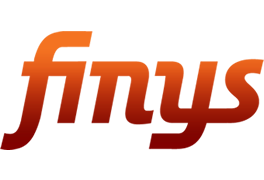Teamwork
By: Ted Ledbetter
As of April of 2024, I’ve been at Finys for 12 years. When I first came here, there were only about 20 people in the company. I was 19. I wasn’t even old enough to drink … legally. I still had two years left of college to finish. I joined shortly after a friend of mine who also worked at Finys recommended I apply since he enjoyed the work. When I came in for my interview with Kurt Diederich, the president and CEO, they had just moved into the office we’re in now. It was a Saturday. Kurt was painting the break room walls. The conversation went something like, “When can you start?”
We’ve certainly grown over the past 12 years, but we still have a small-company vibe. We have a very flat organization. Kurt’s here every day. His door is always open. In that way — and by his example — the company is really good at cultivating leaders. It takes a little time, but all of us who get to leadership roles are expected to mentor others who are coming up. In fact, we don’t even use the term “manager” in the company. It’s more a matter of earning leadership roles by contributing in our own ways, then allowing the members of the teams we lead to contribute in their own ways and to demonstrate their aptitudes and capabilities.
I started in QA, which is where most of us started back in the day. I did that for three months before moving on to development. The person who was the project lead for Virginia Farm Bureau (VFB), our largest client at the time, left the company. Another person was assigned to be the VFB project lead. That didn’t work out. Then I was appointed the VFB project lead after almost a year on the job. It was very much a sink-or-swim type thing, but that’s just how we do things here. The work each of us does actually matters, and the work we do is very quickly put to use. Code I wrote when I first started is still being used by thousands of agents in Virginia every day. We’re given all the help we need, even as we’re given free rein to do things the way we want them done.
Believe it or not, the questions we ask most frequently here are like this: What are all the things we can do to make our clients’ lives easier by using Finys? What can we do to make their days go smoother? What can we do to make their things move faster so they can have an easier day? I think there are many companies where you might spend a week putting something in a backend tool that never gets used. For us, because of the way we go about things and communicate with our clients, those things get used every day, all day.
This also is a company that protects and cares about its people. You don’t get that if you’re working for a billion-dollar company, for a CEO who flies around in his jet plane. Kurt is in the office every single day, more than anyone else. So, he cares the most. He doesn’t drive a Bentley. He’s not spending all the money out on his own private plane or helicopter or whatever, even though we joke that he lands the helicopter on the roof sometimes when the air conditioner kicks in. But he doesn’t.
We also like to say our clients aren’t our clients. They’re our partners. I know partner gets a lot of lip service. But our relationship with VFB isn’t a vendor-client relationship. We’re partners, and we’ve been working with them now for 14 years. I’ve been with them almost all 12 of my years here. We get along and interact with VFB employees just as well as we do any coworker in our office. I can call up anyone over there and talk to them the same way. It’s not a situation in which we’re compelled to do things one way because we’re the vendor. It doesn’t work that way.
By the same token, Kurt and the company have done a really good job of selecting our clients. Not just our employees but our clients. We work with some really good people. That makes our jobs easier. It makes their jobs easier. Everyone’s friendly and we work together so well. If that were different, so many of those relationships might’ve ended long ago. But because we have this partnership with everyone, it makes life so much easier.


